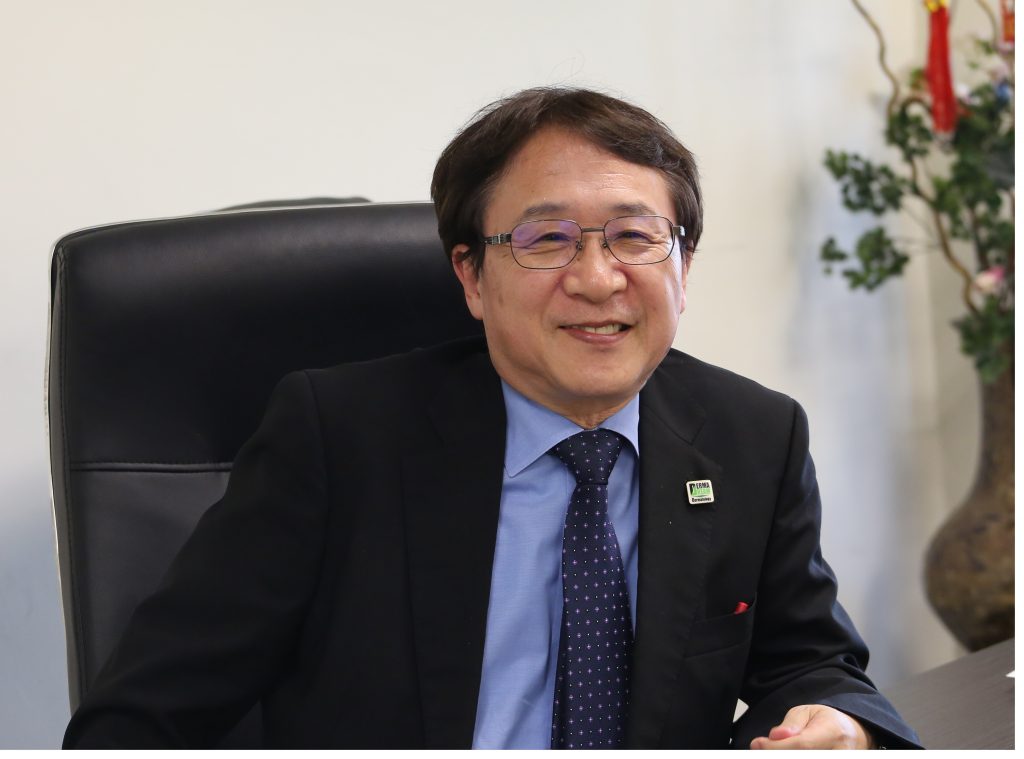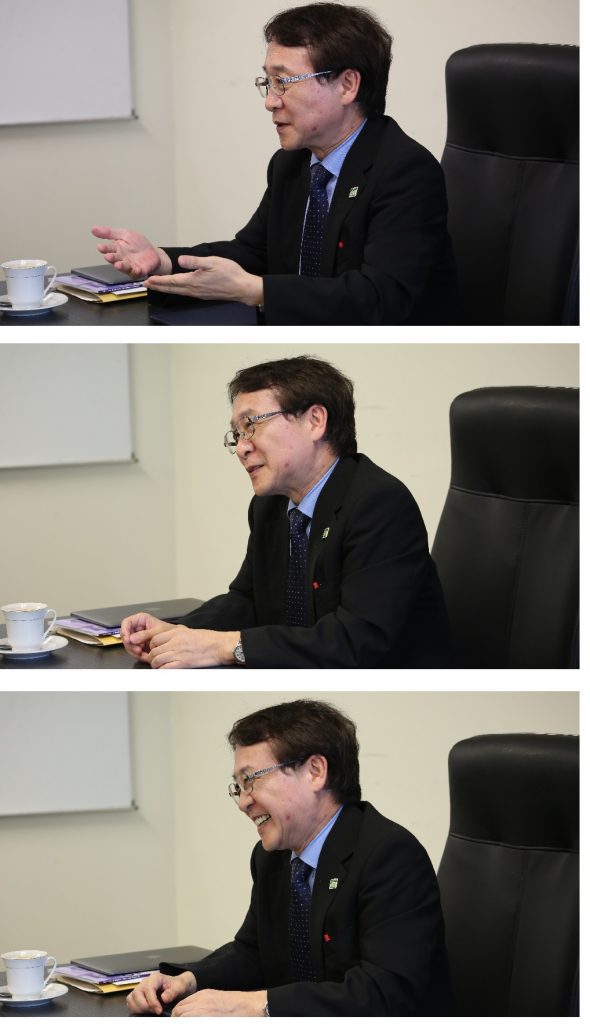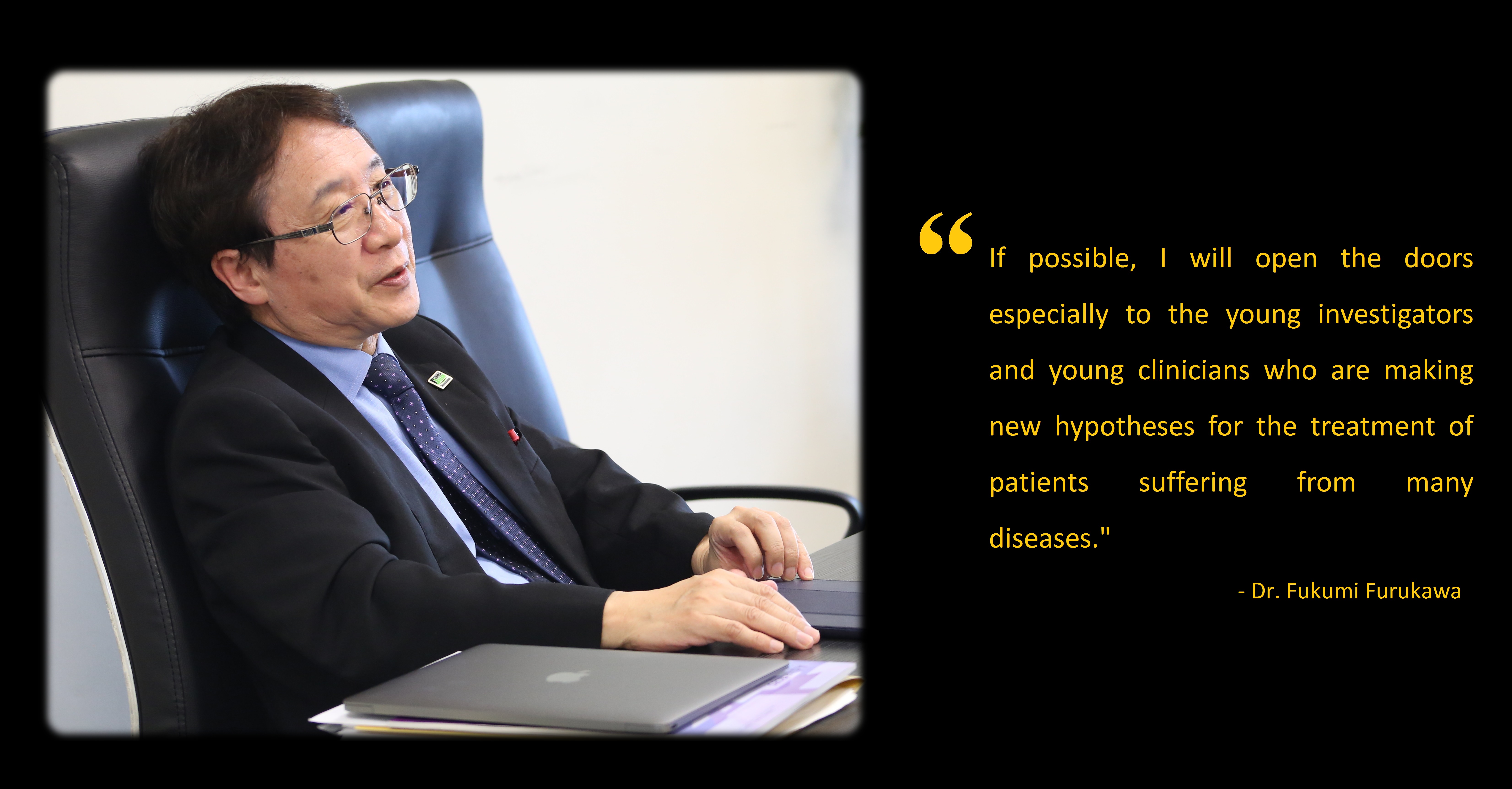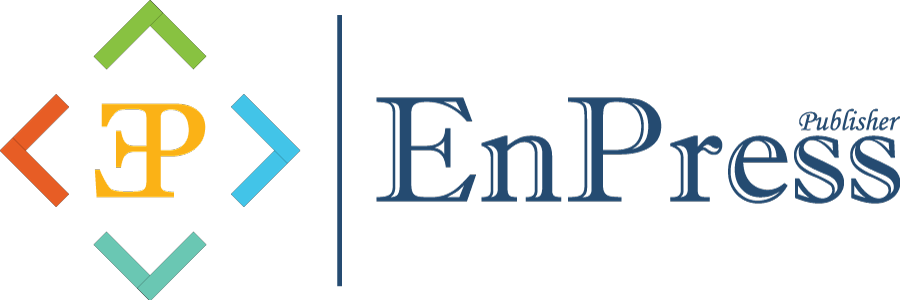
Dr Fukumi Furukawa, the Editor-in-Chief of the newly launched journal Trends in Immunotherapy, recently visited EnPress Publishing office and kindly sat down for an exclusive interview with the EnPress media team. Dr Furukawa was formerly the chairman of the Department of Dermatology at Wakayama Medical University, Wakayama, Japan, before being promoted to the post of Vice President of Wakayama Medical University. He has recently retired but elects to spend his post-academia years drumming up support for the researchers, clinicians and academicians in cancer studies.
EnPress Media: What made you choose a career in the field of medicine?
Dr Furukawa: When I was a student in high school, I had a big illness – a kidney disease. Probably a bacterial infection was triggered by an immune complex, and the bacteria’s antigen was mixed with antibodies and deposited in the kidneys, inside the small vessels of the kidney, injuring the small vessels and this affected the kidney functions. I was sixteen years old and I had to take a one-year break from school –spending one year on the bed in the hospital. So I decided to become a doctor.
Why did I select dermatology? Because dermatology covers everything – skin surface, internal medicine, so on. Also, it is easy to expand into basic research. But, actually, in university, I went to the Department of Pathology to study immunopathology, autoimmune and also systemic lupus disease.
What interests you in becoming the Editor-in-Chief (EIC) of the journal Trends in Immunotherapy?
There are many journals in the world, and there are young doctors eager to publish their theses. But, actually, when we look at those many, many journals, the big doctors require orientations, initiations, grants, etc., which makes publishing difficult for these young doctors.
If possible, I will open the doors especially to the young investigators and young clinicians who are making new hypotheses for the treatment of patients who suffer many diseases.
How would you do that?
We have a strong-spirited, young, and promising team of editors and they are fighting against the diseases. The first step is that I have to do my best to gather the young and also the established editors. And then we have to discuss with the young investigators and editors. After that, I hope some new prospects will appear my way.
If possible, I will open the doors especially to the young investigators and young clinicians who are making new hypotheses for the treatment of patients suffering from many diseases.
Where is the field of immunotherapy now, and where is it going in the future?
I am a dermatologist, so let me introduce the subject in terms of malignant melanomas. Thirty years ago, BCGs (vaccine for tuberculosis) were injected subcutaneously into many patients of malignant melanomas – it is the first step in immunotherapy treatment for malignant melanomas. So why was BCG applied to patients? Because BCG induces non-specific immuno-defense mechanisms. So BCG induces many t-cells, many humoral immunities, etc., and a part of the humoral immunity and a part of T-cells probably attacked the malignant melanoma cells. But the efficiency was very, very low.
The second generation is the antigen-specific T-cell induction in vitro, which means that an antigen is isolated from the malignant cells of the patient, and the antigen of the malignant melanoma is co-cultured with the patient’s lymphocyte. The lymphocyte stimulates the melanoma’s antigen and is activated in the patient again. The activated T-cells, or cytotoxic T-cells, probably will destroy the malignant melanoma cells. That’s the idea. Actually, some doctors have tried it with some good results. However, this is not a universal but a very, very specialized therapy.
And thirdly, as well as chemotherapy, the recent topic is that the immune checkpoint inhibitor agent is very useful in the treatment of malignant melanoma. This is the PD-1. This was discovered by a famous Japanese scientist [Dr Tasuku Honjo of Kyoto University]. From first generation, second generation and third generation immune checkpoint inhibitors, this agent also opens new treatment possibilities for patients with malignant melanomas.
So I want to contribute, and if I can contribute to these new strategies, I’d be very happy. With this new journal, I dream that the journal will bring big contribution to these strategies.


Is immunotherapy the future of cancer treatment?
It’s a combination. If it is one way [of treatment] only, it’s impossible. Chemotherapy, or surgery, or immunotherapy, or immune checkpoint – the combination is very important. Using only one way is impossible to treat cancer patients completely. How to make the right combination, patient by patient – this is the key point for treatment. That is personalized treatment.
What would be the challenges for you as the EIC of the new journal?
That is a difficult question. What we should remember is that the final target or challenge is finding the cure for the diseases. There is much competition among the journals, so the challenge is to overcome the other journals such as Cell, Science, Nature, Lancet, etc. [laughs]
What is your opinion on the Open Access philosophy?
Open access journals are very convenient for us; actually, I have more than ten papers in open access journals. However, it is a bit more expensive. The good merit is that all scientists can read the papers with free access and without charge. Everybody can access the papers which could contain strategies for the cure to treat patients.
What should be done to increase the impact of the new journal?
That is a very good question. And it’s very hard to answer. There are no golden ways; so, for example, when I go to ask or request papers from the well-known doctors, I will try and try to persuade them. There are no special ways, I think, other than to persuade them. Sometimes I’d telephone them, sometimes I’d go to the doctors and I would say, “Please, for the patients who suffer from malignant diseases, please give a chance for your paper.” Hopefully, we will get the chance to spread the word.
Dr Furukawa, thank you for spending time with us.
Thank you!

very nice, a promising journal